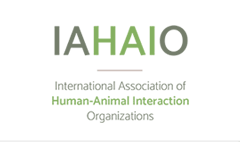Abstract
Animal-assisted interventions (AAI) are well implemented in various health care settings; however, there is little data on the characteristics of the mediation dogs and their selection, which can influence the well-being of both the dogs and the beneficiaries. This study aims to gain a better understanding of the characteristics of French mediation dogs and the context in which they are selected to guide future research working on behavioral criteria for mediation dogs and help provide a basis for better selection of dogs in the field. To this end, we interviewed 111 French handlers in AAI, who work with at least one dog, through an online questionnaire about their professional backgrounds, the characteristics of their mediation dogs, and their views of the favorable and prohibitive criteria for a mediation dog. We also examined handlers’ representations of the context of selection of their mediation dog(s). Our data highlighted that (1) mediation dogs do not represent a homogeneous category regarding the age they started to work in AAI, their current ages, their certifications, and their breeds; and that (2) this may be related to the fact that the process of selecting mediation dogs includes the variability of the therapeutic settings as well as the professional backgrounds of the handlers and their personal affinities for a type of dog. There was also variability in handlers’ representations of the favorable and prohibitive criteria for the mediation dogs but with a convergence toward a sociable dog with self-control. The selection of mediation dogs in France requires an individual choice that considers each human–dog team in their relationship and in the context of their work.
Recommended Citation
Mignot, Alice; Leboucher, Gérard; Servais, Véronique J.; and de Luca, Karelle
(2023)
"Who Is the Good Boy/Girl? Perspectives of French Handlers in AAI on the Selection of Their Dogs,"
People and Animals: The International Journal of Research and Practice: Vol. 6
:
Iss.
1,
Article 9.
Available at:
https://docs.lib.purdue.edu/paij/vol6/iss1/9
Included in
Quantitative, Qualitative, Comparative, and Historical Methodologies Commons, Zoology Commons


